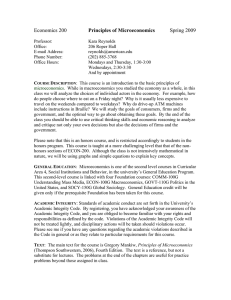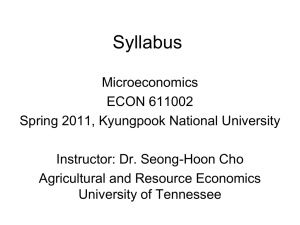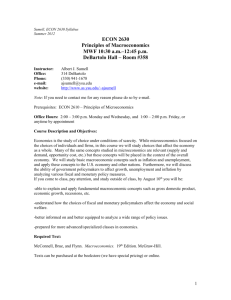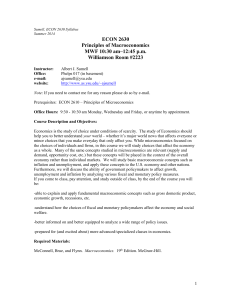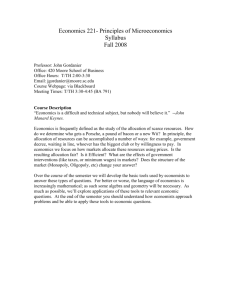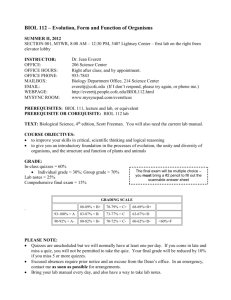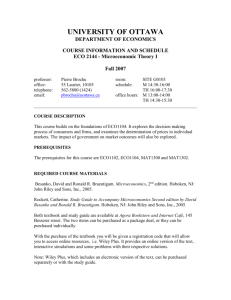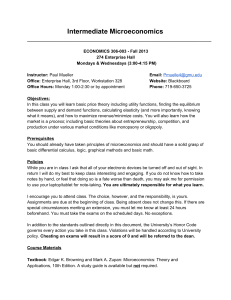ECON 200: INTRODUCTORY MICROECONOMICS
advertisement
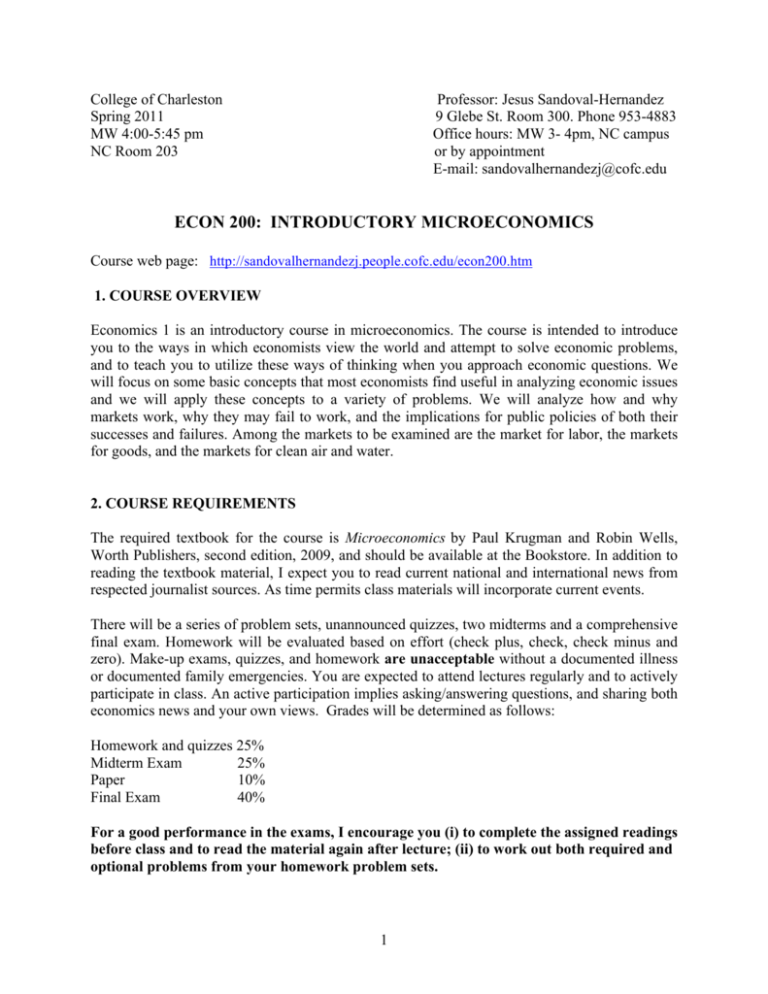
College of Charleston Spring 2011 MW 4:00-5:45 pm NC Room 203 Professor: Jesus Sandoval-Hernandez 9 Glebe St. Room 300. Phone 953-4883 Office hours: MW 3- 4pm, NC campus or by appointment E-mail: sandovalhernandezj@cofc.edu ECON 200: INTRODUCTORY MICROECONOMICS Course web page: http://sandovalhernandezj.people.cofc.edu/econ200.htm 1. COURSE OVERVIEW Economics 1 is an introductory course in microeconomics. The course is intended to introduce you to the ways in which economists view the world and attempt to solve economic problems, and to teach you to utilize these ways of thinking when you approach economic questions. We will focus on some basic concepts that most economists find useful in analyzing economic issues and we will apply these concepts to a variety of problems. We will analyze how and why markets work, why they may fail to work, and the implications for public policies of both their successes and failures. Among the markets to be examined are the market for labor, the markets for goods, and the markets for clean air and water. 2. COURSE REQUIREMENTS The required textbook for the course is Microeconomics by Paul Krugman and Robin Wells, Worth Publishers, second edition, 2009, and should be available at the Bookstore. In addition to reading the textbook material, I expect you to read current national and international news from respected journalist sources. As time permits class materials will incorporate current events. There will be a series of problem sets, unannounced quizzes, two midterms and a comprehensive final exam. Homework will be evaluated based on effort (check plus, check, check minus and zero). Make-up exams, quizzes, and homework are unacceptable without a documented illness or documented family emergencies. You are expected to attend lectures regularly and to actively participate in class. An active participation implies asking/answering questions, and sharing both economics news and your own views. Grades will be determined as follows: Homework and quizzes 25% Midterm Exam 25% Paper 10% Final Exam 40% For a good performance in the exams, I encourage you (i) to complete the assigned readings before class and to read the material again after lecture; (ii) to work out both required and optional problems from your homework problem sets. 1 3. TENTATIVE SCHEDULE DATE TOPICS READINGS, EXAMS 1 1/10-14 2 1/18-1/21 3 1/24-1/28 4 1/31-2/4 5 2/7-2/11 6 2/14-2/18 7 2/21-2/25 8 2/28-3/4 9 3/14-3/18 Introduction, first principles, economic models, Supply and demand Overview, Chapters 1-2 plus appendix from chapter 2 Chapter 3 Supply and demand (Cont.), Chapter 3 Consumer and producer surplus Chapter 4 Markets interventions: Price and quantity controls Elasticity Chapter 5 Taxes Economic decision making Chapter 7 Midterm one Chapter 9 Producer theory: the production decision Chapter 12 10 3/21-3/25 11 3/28-4/1 12 4/4-4/8 13 4/11-4/15 14 4/18-4/20 15 4/22-4/25 16 4/29 Perfect competition Chapters 13 Monopoly, Chapter 14 Oligopoly Chapter 15 Midterm two Chapter 16 Monopolistic competition and product differentiation; Externalities Chapters 6 Chapter 17 Public goods & common resources Chapter 18 Final Exam Comprehensive 4:00-7:00 pm ADDITIONAL INFORMATION: Contact information The best way to contact me is by email. My email is sandovalhernandezj@cofc.edu Student Honesty Policy: 2 Students are expected to abide to the College of Charleston Honor Code and Code of Student Conduct. This means you are expected to exercise academic honesty and integrity. Violations such as cheating and plagiarism will result in disciplinary action with severe consequences. Students with Disabilities: Students with documented learning disability, approved by SNAP Services to receive accommodations, contact me during my office hours. 3
